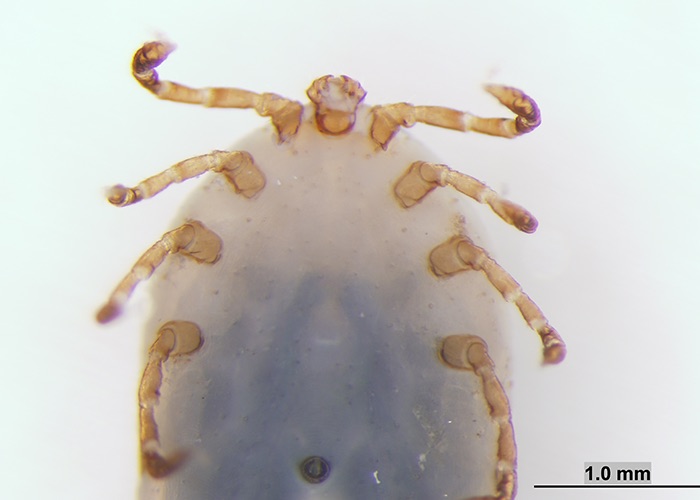
Oklahoma State Veterinary Center Identifies Exotic Tick
Thursday, June 21, 2018
It’s not every day you see a new tick! Dr. Susan Little’s research group at Oklahoma State University’s Center for Veterinary Health Sciences recently identified a nymphal longhorned tick or bush tick, Haemaphysalis longicornis. The tick came from a dog in Arkansas through a national tick surveillance project being conducted by Little’s team. The OSU lab confirmed the morphologic identification by sequencing and reported the finding to the United States Department of Agriculture.
According to Little, a renowned veterinary parasitologist, the finding wasn’t altogether surprising.
“We knew to be on the lookout for this tick given recent reports in New Jersey, Virginia, and West Virginia,” said Little. “We are very glad we were able to assist on efforts to understand the current distribution of this new species.”
Originally from East Asia, the longhorn tick successfully established itself in other areas of the world including Australia, New Zealand, and perhaps now, the eastern United States. It readily feeds on cattle, small ruminants, horses, dogs, cats, people, and several common wildlife species.
Most modern tick control products are effective against this tick in other areas of the world. To protect yourself and your animals from this tick or any tick, Dr. Little recommends routine use of year-round tick preventive. Your veterinarian can suggest the best method for your particular animals.
Surveillance is ongoing at this time to learn more about where the tick is in North America and what diseases – if any – it may be transmitting. If you find unusual ticks on animals, please feel free to submit them to Oklahoma State University’s veterinary center for identification. Instructions on submitting can be found at www.showusyourticks.org.
Susan Little, DVM, Ph.D., is a diplomate in the American College of Veterinary Microbiology (Parasitology). A professor in the veterinary center’s Department of Veterinary Pathobiology, she holds the Krull-Ewing Endowed Chair in Veterinary Parasitology.
